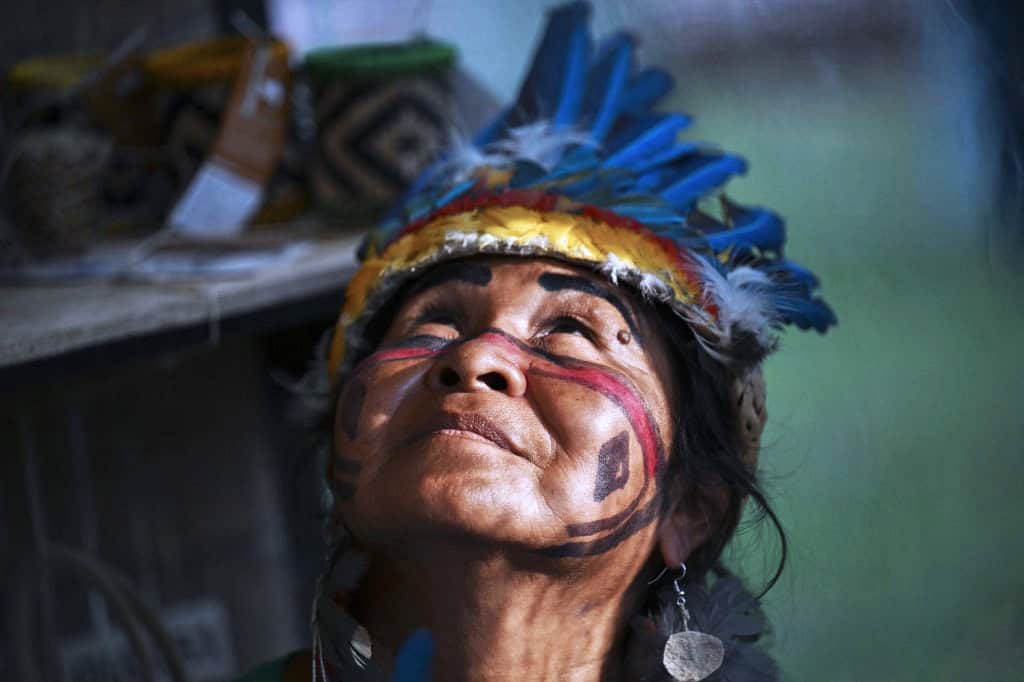The COVID-19 and Ebola epidemics highlighted the damage humans can suffer when interfering with wildlife. Experts and activists are urging the world to learn from these experiences at the COP16 biodiversity conference currently taking place in Colombia.
“Deforestation, intensive agriculture, wildlife trade, and exploitation are the main drivers of biodiversity loss and the development of zoonoses,” or diseases transmitted from animals to humans, explains Adeline Lerambert of the UK NGO Born Free, attending the event in Cali (southwest Colombia). Governments must act now, as experts warn of the likelihood of more frequent and deadly pandemics in the future.
“The more humans and their livestock penetrate untouched areas of high biodiversity, the higher the likelihood of encountering new virus strains (especially RNA viruses like COVID-19) that constantly mutate,” states Colman O’Criodain, head of wildlife at the World Wildlife Fund (WWF). The Cali summit is debating an “action plan” on the link between biodiversity and health, which will be adopted by the 196 member countries of the Convention on Biological Diversity (CBD), meeting until November 1.
The plan includes commitments to limit agriculture and forestry, reduce the use of pesticides, fertilizers, and other harmful chemicals to nature, and decrease the use of antibiotics in farm animals. “We must change our relationship with nature if we want to prevent more epidemics and pandemics,” summarizes Sue Lieberman, Vice President of the Wildlife Conservation Society, who advocates for the plan’s adoption.
Everything is interconnected
“Future pandemics will be more frequent, spread faster, cause more damage to the global economy, and kill more people than COVID-19 unless there is a shift in the global approach to combating infectious diseases,” warns the Intergovernmental Science-Policy Platform on Biodiversity and Ecosystem Services (IPBES), the biodiversity equivalent of the IPCC for climate experts.
Zoonotic diseases can emerge when humans encroach upon virgin forests or transport and trade wild animals for their meat. Examples include the Wuhan market in China, where some scientists believe COVID-19 first appeared, and the tons of wild animal meat that illegally cross continents in airplane cargo holds.
“When animals are stressed in cages stacked on top of each other, they release bodily fluids containing viruses,” explains Lieberman. “Everything is related. Everything is interconnected,” she adds.
Another pandemic
The 2020 IPBES report had called for a “transformative change in the global approach to addressing infectious diseases.” The report estimates there are about 1.7 million viruses currently “undiscovered” in mammals and birds, up to 827,000 of which could potentially infect humans.
The plan discussed at COP16 will carry the moral authority of a document approved by a consensus of 196 countries, but it will not be binding. “The text is almost ready for adoption,” marking “a positive step for COP,” says the WWF.
The document explicitly mentions the risk of zoonoses caused by habitat destruction or the spread of invasive exotic species by humans. “A voluntary action plan has no consequences if a government chooses to ignore it,” points out Lieberman, a member of the working group.
But she hopes that the fear of a new pandemic will drive action, even as a new deadly outbreak, the Marburg virus—transmitted to humans by bats—hits Rwanda. “If nothing is done, if nothing changes, there will be another pandemic. The question is not if there will be another, but when,” she warns






